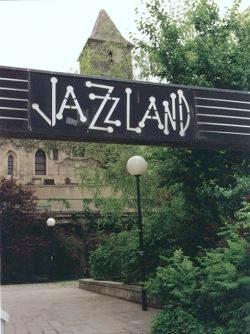
Ronnie Scott was a jazz musician – a tenor sax player raised as Ronald Schatt in the East End of London. For the decade or so after the end of WWII, when all sorts of exciting things were happening in jazz in the US, a dispute between the American and British musicians’ unions prevented American musicians from playing in the UK, so we Brits had to listen to Billy Cotton or AFN Munich-Stuttgart while the Messiahs of modern jazz changed planes at Heathrow on their way to Paris. So that he could hear what was going on in New York, Ronnie got a job playing dance music on the Atlantic liners so that he could hang out in Manhattan listening to the likes of Charlie Parker, Dizzy Gillespie and Miles Davis.

In 1959 he came ashore and, together with fellow tenor saxophonist Pete King, he opened his own Jazz Club, Ronnie Scott’s, in London's Soho. In between leading his own band – the Jazz Couriers, touring and sessioning with big bands - he presented the artists at the club and during sound checks entertained with an inimitable brand of cynical humour: ‘…try the food here – fifty million flies can’t be wrong’.*
(Many jazzmen become funny writers: the likes of George Melly, Wally Fawkes, Humphrey Lyttelton and Benny Green – who lamented the decline of live music caused by electronic sound with the words ‘Now is the winter of our discoteque’.)
At first his intention was to provide a place where British jazz musicians could jam, but when the American Federation of Musicians lifted the ban on American musicians performing in the U.K., Pete and Ronnie started to present not only the best of British jazz musicians, but the cream of modern US and continental jazz.
They ran the club brilliantly for forty years until, ten years ago this month, Ronnie died. About the worst thing that can happen to saxophone players are teeth problems, and when Ronnie had to have tooth implant surgery, the pain, depression and inability to work led him to indulge in a cocktail of brandy and sleeping tablets. In his distress, he ‘phoned a girlfriend in New York and left a message on her answering machine which, had she received it, might have saved his life – but she was out of town and didn’t hear it until after he was dead. The verdict of the inquest was ‘death by misadventure’.
Ronnie Scott introduced a lot of people to jazz, and many others – including me - to mind-blowing musical experiences too numerous to list here.
One of his favourite lines now has special poignancy: ‘You’re very quiet tonight. Shall we all join hands and see if we can contact the living?’
Belated thanks Ronnie.
* Another of Ronnie's was that of a dyslexic Japanese who, every December 7, attacked Pearl Bailey.

5 comments:
Crazy, man.
He was. When asked, on the rather snooty 'Desert Island Discs' radio programme, what was the one luxury he would take with him to a desert island, he said, 'an inflatable doll'.
DO you really think they'd sprink;e your ashes in his club? It's a great idea but wouldn't it violate lots of health regulations- or all of them? ;)
You're right Ed - especially if it gets into the air conditioning.
Think we'll go to plan B - Goodison Park, a certain football ground in the NorthWest - when the lads are playing Liverpool
Only if it didn't rain.
;)
Post a Comment